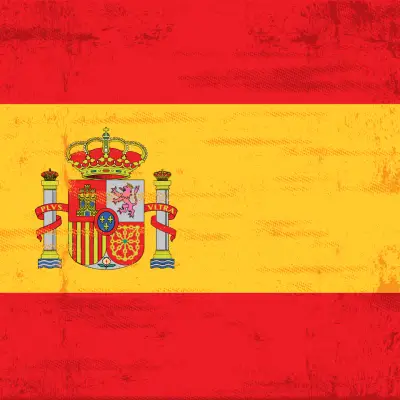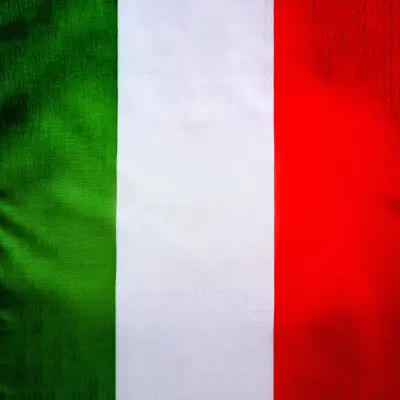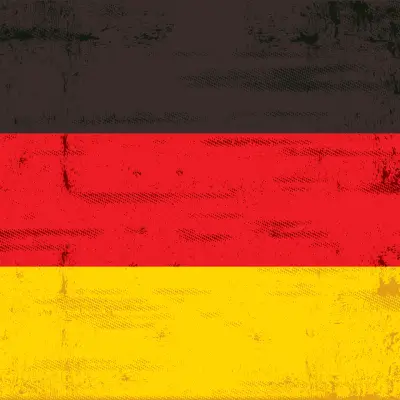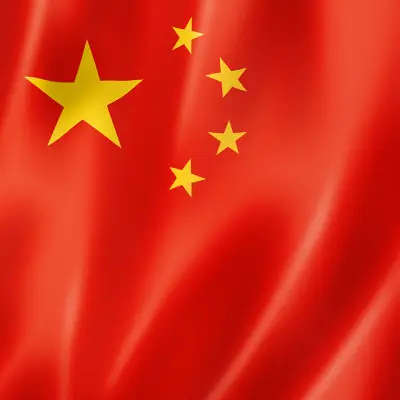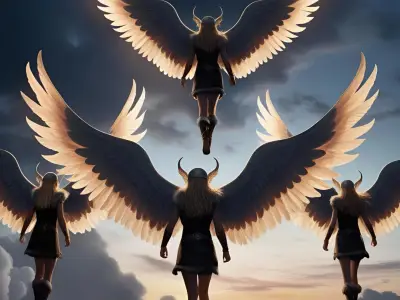Chinese symbols have fascinated people for centuries, capturing ideas, emotions, and traditions in their intricate designs. Whether you’re looking to understand the symbolism behind a tattoo, learn about traditional Chinese culture, or find a meaningful symbol to incorporate into your life, this guide introduces you to some of the most significant Chinese characters and their meanings.
Jump to:
- Love (愛/爱)
- Luck and Prosperity (福)
- Peace and Harmony (和平)
- Happiness and Double Happiness (喜)
- Longevity and Health (健康)
- Family (家)
- Friendship (友誼/友谊)
- Strength and Resilience (力)
- Chi Energy (氣/气)
- Hope and Ambition (希望)
- Wisdom (智)
- Courage (勇)
- Harmony (和)
- Strength (强)
- Fortune (福)
- Protection (安)
- Prosperity (昌)
- Health (健康)
- Life (生)
- Ambition (志)
- Frequently Asked Questions About Chinese Symbols
- Study Beginners’ Mandarin for £29
Recommended for you!
Best Sellers1. Love (愛/爱)
Chinese symbols for love (愛/爱) are among the most popular and meaningful. The traditional character 愛 incorporates the concept of a heart, representing deep emotional connections, while the simplified version 爱 simplifies the structure without losing its essence.
If you’re exploring Chinese characters for love, this symbol reflects devotion, passion, and affection. It’s often used in calligraphy, jewellery, and tattoos, making it a timeless representation of one of humanity’s most cherished emotions.
2. Luck and Prosperity (福)
The Chinese symbol for luck (福) is integral to cultural practices, especially during the Lunar New Year. It’s often displayed upside down on doors to signify “luck arriving.”
Similarly, prosperity symbols like 財 (wealth) are deeply rooted in Chinese traditions. These symbols are frequently seen on good luck charms, in businesses, and as part of festive decorations, representing the desire for abundance, success, and fortune.
3. Peace and Harmony (和平)
The Chinese character for peace (和平) signifies harmony and tranquillity. Often paired with symbols for family or happiness, it reflects the importance of maintaining balance in life.
Whether used in art, meditation practices, or as part of home decor, these symbols encourage a calm and peaceful existence. For those seeking to integrate peace into their lives, understanding peace in Chinese writing or characters can offer a meaningful way to embrace this value.
4. Happiness and Double Happiness (喜)
Happiness in Chinese (喜) is a widely celebrated concept, symbolising joy, fulfilment, and success.
The double happiness symbol (囍) holds particular significance in Chinese weddings, representing unity and shared happiness for the couple. It’s a staple in wedding decorations, gifts, and textiles, embodying the wish for a blissful and harmonious marriage.
5. Longevity and Health (健康)
Longevity (壽/寿) is a powerful symbol in Chinese culture, often associated with a long and healthy life. Paired with the character for health (健康), it reflects a wish for vitality and endurance.
These symbols are common in traditional Chinese art, especially in calligraphy and on decorative items such as scrolls and ceramics, making them enduring symbols of well-being.
6. Family (家)
The character for family (家) is central to Chinese culture, symbolising unity and togetherness.
Whether you’re exploring family in Chinese writing or looking for Chinese kanji for family, this symbol represents the importance of close-knit relationships and mutual support. It’s a meaningful way to honour the bonds that connect loved ones.
7. Friendship (友誼/友谊)
Friendship in Chinese (友誼/友谊) celebrates the enduring nature of relationships built on trust and companionship.
The symbol for friendship is often used in exchanges between friends, whether through gifts, artwork, or personalised items. It’s a heartfelt representation of mutual respect and shared experiences.
8. Strength and Resilience (力)
The Chinese character for strength (力) encapsulates physical and inner strength. It’s a popular choice for tattoos and motivational designs, symbolising determination, courage, and the ability to overcome challenges.
Whether you’re seeking inspiration or a visual reminder of resilience, this symbol is a powerful choice.
9. Chi Energy (氣/气)
The symbol for chi is a reminder of the flow of energy that connects all living things, encouraging harmony in mind, body, and spirit.
10. Hope and Ambition (希望)
The Chinese character for hope (希望) signifies optimism and aspiration. It’s often paired with symbols of ambition, representing the drive to achieve one’s dreams and goals.
These characters are perfect for those seeking inspiration, providing a meaningful reminder of the importance of perseverance and positivity.
11. Wisdom (智)
The Chinese character for wisdom, 智, combines knowledge and experience, reflecting deep understanding and insight. It emphasises the importance of learning from both successes and failures, fostering personal growth and enlightenment.
Wisdom is often revered in Chinese philosophy as a key virtue for living a balanced and meaningful life, making this symbol a source of inspiration for those on a journey of self-discovery.
12. Courage (勇)
勇, the Chinese character for courage, represents bravery and the strength to face challenges. It embodies the ability to overcome fear and take bold steps toward your goals, even in the face of adversity.
Courage is a trait deeply admired in Chinese culture, often associated with heroes and warriors, but also applicable to everyday acts of resilience.
13. Harmony (和)
Harmony, 和, is a central concept in Chinese culture, symbolising balance and unity. It reflects the importance of creating peace within yourself and your surroundings.
This symbol is often used in practices like feng shui to encourage equilibrium in relationships, homes, and workspaces.
14. Strength (强)
The character for strength, 强, signifies physical and mental resilience. It’s a reminder of the power you possess to endure difficulties and emerge stronger.
This symbol encourages people to tap into their inner strength, providing motivation to face life's challenges head-on.
15. Fortune (福)
Fortune, 福, is one of the most recognised symbols in Chinese culture, representing blessings and good luck.
It’s commonly displayed in homes and businesses to invite prosperity and happiness. Often seen during the Lunar New Year, it’s a cherished emblem of abundance and positivity.
16. Protection (安)
The symbol for protection, 安, conveys a sense of safety and peace. It is often used in calligraphy and charms to provide reassurance and security. This character is a reminder of the importance of creating a safe environment for yourself and your loved ones.
17. Prosperity (昌)
The character for prosperity, 昌, represents success and thriving in all aspects of life. It’s often used in business contexts to symbolise growth and abundance. Prosperity is not only about material wealth but also about flourishing in health, relationships, and personal achievements.
18. Health (健康)
The character for health, 健康, symbolises physical and mental well-being. It serves as a reminder to prioritise self-care and maintain balance in your life. In Chinese culture, health is seen as the foundation for happiness and success, making this symbol highly significant.
19. Life (生)
The Chinese character for life, 生, reflects the vitality and essence of existence. It encompasses birth, growth, and the ongoing journey of living. This symbol serves as a powerful reminder to embrace each moment and honour the gift of life.
20. Ambition (志)
The character for ambition, 志, signifies determination and the pursuit of goals. It embodies the drive to achieve greatness and overcome challenges.
In Chinese culture, ambition is often celebrated as a trait that leads to personal and collective success, inspiring individuals to strive for their dreams.
Recommended for you!
Best SellersFrequently Asked Questions About Chinese Symbols
What is the most famous Chinese symbol?
The character 福 (fortune) is one of the most famous Chinese symbols, commonly seen during the Lunar New Year and in homes and businesses. It represents blessings, good luck, and prosperity, often displayed upside down to signify that luck is “arriving.”
What do Chinese symbols mean in tattoos?
Chinese symbols in tattoos often represent personal values or aspirations, such as love (愛), strength (力), or hope (希望). It’s important to ensure accuracy when choosing a symbol to avoid unintended meanings, as subtle changes in strokes can significantly alter a character’s meaning.
Are Chinese symbols the same as kanji?
Kanji are characters used in the Japanese writing system, many of which originate from Chinese characters. While the meaning of some symbols remains the same, others have evolved differently in Japanese and Chinese contexts, so it’s important to check the intended meaning in the correct language.
What is the hardest Chinese character to write?
The character 龘 (dá), which means “the appearance of a dragon flying,” is considered one of the most complex Chinese characters, with 48 strokes. It’s rarely used and primarily serves as a linguistic curiosity.
Why are some Chinese symbols simplified?
Simplified Chinese characters were introduced in the mid-20th century to increase literacy rates by making writing faster and easier. Traditional characters are still used in regions like Hong Kong, Taiwan, and Macau, while simplified characters are standard in mainland China and Singapore.
How can I learn to write Chinese symbols?
Learning to write Chinese symbols requires practice and an understanding of stroke order. Starting with basic characters, such as numbers or common words, can help build confidence. A structured course, such as a Mandarin Chinese for Beginners Diploma Course, can provide a solid foundation for mastering this type of Chinese writing.
Study Beginners’ Mandarin for £29
If you’re inspired to learn more about the beauty and meaning of Chinese symbols, the Mandarin Chinese for Beginners Diploma Course with Centre of Excellence is the perfect place to start. Learn at your own pace, benefit from a private tutor, and test your knowledge with structured assessments. For a limited time, you can access this course for just £29!


